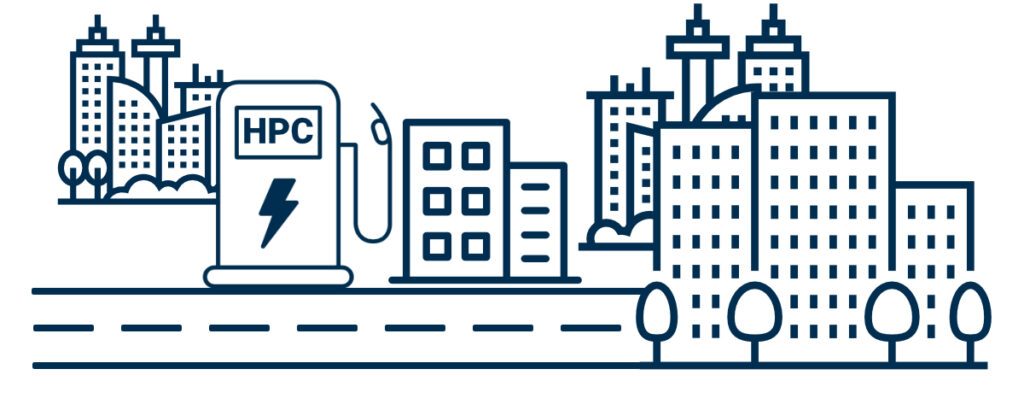High Power Charging in Berlin

Project description
In the project “High Power Charging in Berlin”, RLI is conducting a study about grid integration best practices for High Power Charging (HPC) in urban spaces by example of the German capital Berlin. This study is part of the Sino-German Energy Transition Project (EnTrans), funded by the German Federal Ministry for Economic Affairs and Energy. Thus, the study also aims to advise and support state think tanks in modeling low-carbon energy scenarios and corresponding research through cooperation with German and international partners.
High Power Charging is a challenge for power grids
HPC can pose a strain on local power grids, as very high power flows occur over short periods of time. This could result in excess cost on grid investment and may pose problems for grid stability. On the other hand, HPC technology and the reduction of charging time that it implies, is a key factor for the acceptance of e-mobility and its suitability for everyday use.
RLI has thus been commissioned by Deutsche Gesellschaft für Internationale Zusammenarbeit (GIZ), to prepare a case study, which examines the mobility demand for HPC, how it affects the distribution grid, and how this power demand can be supplied with renewable energy.
Berlin as an example for an urban area with a need for HPC
This will be done by means of a survey of mobility needs in Berlin and its energy requirements for transport and HPC points. The effects of mobility-specific energy requirements on the power grid will be analyzed, taking into account various aspects such as charging strategies and locations for HPC points. Additionally, the study will identify factors that favor the integration of renewable energy.
In the next step, grid-specific analyses will be carried out with already existing tools in order to determine compensation measures for high feed-in from renewables and high charging requirements by e-mobility. Additionally, site-specific operation strategies for HPC points to ensure grid stability will be developed.
German-Chinese research dialogue
As the study is part the Sino-German Energy Transition Project (EnTrans), funded by the German Federal Ministry for Economic Affairs and Energy, it aims to advise and support state think tanks in modeling low-carbon energy scenarios and corresponding research through cooperation with German and international partners.
The RLI research team will partner with a research group in China, that is conducting a similar study for a Chinese urban transport system. The results will be shared as the project goes along and will become part of a German-Chinese research collaboration on HPC charging in the long term.
Project duration: January – December 2021
Tasks
Phase 1:
- Design and conduct case studies combined with desktop research on high power chargingPreparation, implementation, and analysis of 20 to 30 expert interviews with relevant stakeholders
- Evaluation of transferability between European and Chinese settings
- Identify challenges, best-practices, solution approaches
Phase 2:
- Thorough examination of mobility demand and existing infrastructure conditions for Berlin, including buses, trucks and private-owned vehiclesEstimation of the impact on the electricity system in several scenarios
- Proposition of grid-friendly integration options
- Developing strategies for charging point allocation
Phase 3:
- Analysis of sector coupling potential of e-mobility with renewable energy in urban and sub-urban areas
- Data analysis and report writing
- Project communication and dissemination of results online event

